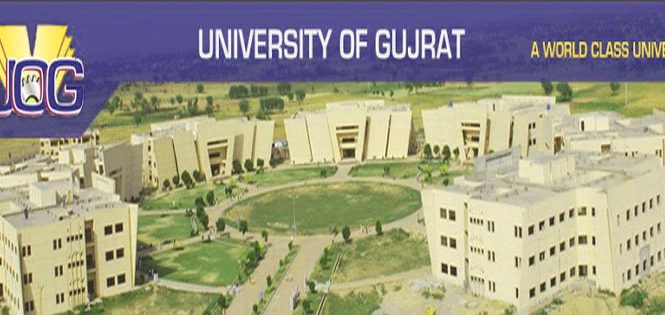M Phil Mass Communication important eBooks Dear Students of M Phil Mass Communication , University of Gujrat, Pakistan. Students of M Phil Mass Communication have to explore a variety of subjects and topics. It is not possible to buy books for every topic so teachers have prepared notes and other helping study material for students on different topics. It is commonly quite difficult and hassle for lecturer to share notes as well as for students to get the notes and other study material. You will always find a huge students’ rush on photocopier shop to get notes. Now masscommunicationtalk.com has maintained almost all the notes and study material for M Phil Mass Communication students. You can explore all the notes and study material online here. You can explore already uploaded notes as well as you can add your own notes. If you have developed your own notes or you wanted to […]
JOURNALISM A PROFESSION OR A CRAFT?
JOURNALISM A PROFESSION OR A CRAFT Presentation The Oxford Advanced Learners lexicon (2010; 808) characterizes news-casting as “the work of gathering and composing news stories for daily papers, magazines, radio and TV.” There has dependably been a disarray on whether news coverage is a calling of a specialty. Reporting has dependably been seen as some sort of fine art, when contrasted with different callings. This is because of the way that when individuals consider news coverage, they constrain it to composing, showing and babble. This blog entry will examine in points of interest why Journalism is viewed as a calling instead of an art. Reporting simply like some other calling, has a few components to it, for example, the way of life of news-casting, gatekeeping in media and morals. These components will be talked about later in this post. WHY JOURNALISM IS CONSIDERED A PROFESSION The term calling is depicted as […]
The Exponential Principle in Culture
The Exponential Principle This theory states that, as the cultural base grows, its possible uses tend to grow in a geometric ratio. To illustrate: if we have only two chemicals in a laboratory, only one combination (A-B) is possible (A-B-C, A-B, A-C, and B-C,), with four chemicals, ten combinations; with five chemicals, twenty-five/ and so on. As the size of the culture base grows by addition, the possible combinations of these elements grow by multiplication. This helps to explain today’s high rate of discoveries and invention. A vast accumulation of scientific technical knowledge is shard by all the civilized societies, and from this base new inventions and discoveries flow in a rising tide. Values To understand the term “value” in it true sociological sense, it is, absolutely necessary to discuss the elements of culture. Norms Norms are shared rules or guidelines that prescribe the behaviour that is appropriate in a […]
What is The Cultural Base?
The Cultural Base By the culture base, we-mean the accumulation of knowledge and technique available to the inventor in a society. As the culture base grows, an increasing number of inventions and discoveries become possible. The invention of the geared wheel provided a component which has been used in countless inventions. The discovery of electromagnetic and the invention of the vacuum tube, the transistor, and the microchip provided necessary components for hundreds of more recent inventions. Unless the Cultural base provides enough earlier inventions and discoveries, fresh inventions cannot be completed. The recent “knowledge explosion” is often cited as the source of modern innovation. This is another way of saying that the cultural base is rapidly growing and is accessible to a growing number of our people. When all the supporting knowledge has been developed, the appearance of an invention or discovery becomes almost a certainty; In fact, it is […]
What is the Significance of Culture?
The Significance of Culture Only culture accounts for the success of human beings. We create culture, but ‘ culture in turn creates us. We are no longer the helpless victims of the natural environment. We make our own social environment, inventing and sharing the rules and patterns of behaviour that shape our lives. We use our knowledge to modify the natural environment as well. Without a culture transmitted from the past, each new generation would have to solve the most elementary problems Of human existence over again. It would be obliged to devise a family system, to invent a language, to discover fire, to create the wheel, and so on. Cultural inventions enable us to be insulated from the cold of the Arctic, to travel in outer space, and to live in submarinesall with|ut any recourse to physical evolution. Unlike other animals, we can self-consciously adapt to our environments and […]
What is culture in Mass Communication? Definition of Culture
In a general sense, the word culture is often used to refer to refined tastes in art, literature, or music etc. The sociological use of the term is much wider, and includes the entire way of life of a society. In this sense everyone who participates in society is “cultured.” To the sociologists, culture consists of all the shared products of human society”. These products are of two basic kinds , viz material and non-material .Material culture consists of all the artifacts or physical objects human beings create—such as wheel, clothing, schools, factories, cities, books, computer etc. Non-material culture consists of more abstract creations — like language, ideas, beliefs, rules, customs, myths, skills, family patterns, political systems. Sociology, 1977, 1An Robertson, P. 51. According to Sir Edward Tylor (1871), “Culture .. is that complex whole-which includes knowledge, beliefs, art, morals, law, customs and any other capabilities and habits acquired by […]
